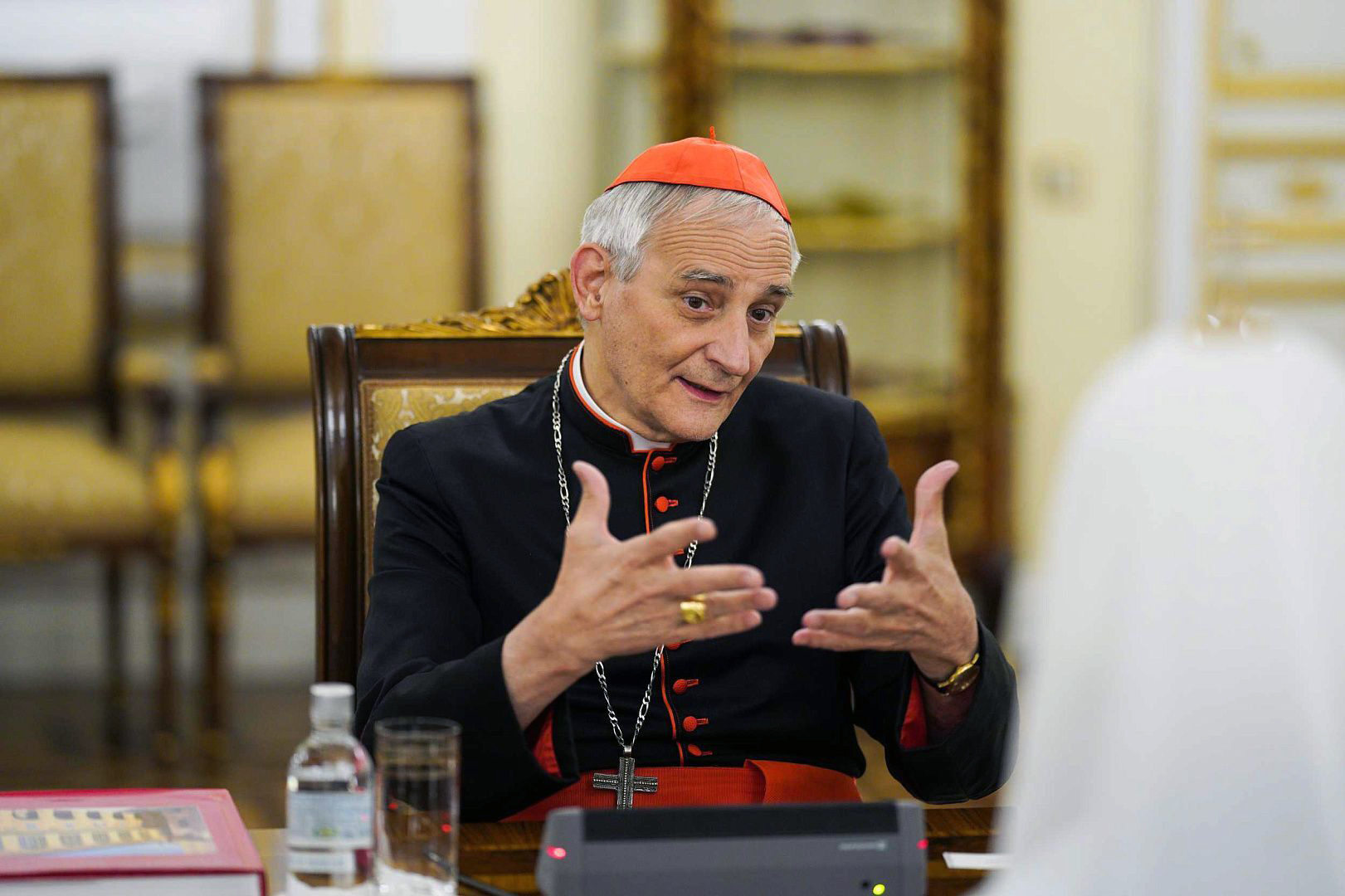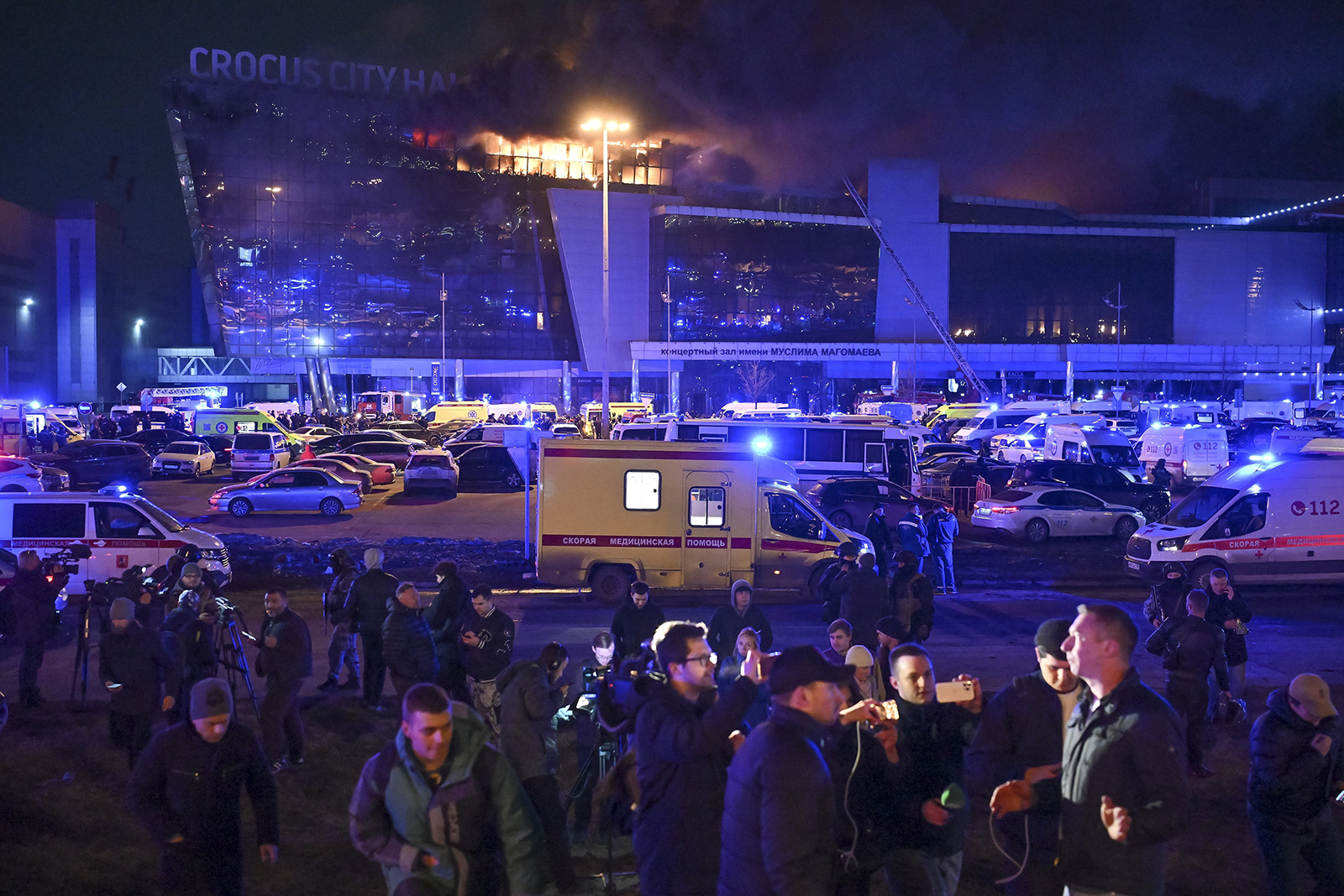VATICAN CITY (RNS) — On Palm Sunday, Pope Francis once again expressed his closeness to the “martyred” country of Ukraine, while also praying for the victims of the “vile terrorist attack” in Moscow on Friday that left 139 people dead and many more wounded.
As many Christians draw closer to Easter, Pope Francis and the Vatican continue their efforts to reach out to both parties in the Russian and Ukrainian war. For the pope, there are no good guys and bad guys in today’s polarized wars, and achieving peace takes precedence over overarching ideologies.
“Pope Francis tells us that when we attempt to enter into dialogue we need to avoid preconceived assumptions of good versus bad and instead try to start from zero with no set conditions,” said Victor Gaetan, author of “God’s Diplomats: Pope Francis, Vatican Diplomacy and America’s Armageddon,” speaking to Religion News Service on Tuesday (March 26).
The pope’s vision is enshrined in his 2013 document “The Joy of the Gospel,” where he stated that “reality is greater than ideas.” Behind this cryptic statement lies the pontiff’s belief that the concrete suffering of innocents during times of war is more important than the ideologies underlying the conflict.
Representing the pope’s diplomatic approach on the ground is Cardinal Matteo Zuppi, who was appointed by Francis to lead the Vatican’s peace mission in Ukraine. An experienced peacemaker, Zuppi has taken on the seemingly impossible effort of promoting dialogue among two countries marked by reciprocal animosity.
“We must do everything from a humanitarian perspective, especially for the children, and work on every front to promote negotiations,” Zuppi said during a Rome news conference to present his new book, “God Doesn’t Leave Us Alone: Reflections of a Christian in a World in Crisis,” on March 20.

Cardinal Matteo Zuppi meets with Patriarch Kirill at the Patriarchal Residence in Danilov Monastery, in Moscow, June 29, 2023. (Photo by Moscow Patriarchate)
In his book, the cardinal points to two crises tearing at humanity: inequality and war. Zuppi especially points to “forever wars,” meaning conflicts that continue for decades without any path toward a resolution. The wars in Ukraine and in the Holy Land are examples of these never-ending wars, Zuppi said.
“There seems to be a fascination, an attraction toward war, even though we are children of a generation that experienced peace,” Zuppi said. “If peace today only becomes a truce, it means we haven’t learned anything from a generation of men and women who preceded us,” he added.
The head of the Catholic lay movement St. Egidio, Andrea Riccardi, praised Zuppi as “a man of peace but without the ingenuousness of the pacifist.” St. Egidio has become the de facto arm of Vatican diplomacy under Pope Francis, capable of acting effectively in peacemaking and building humanitarian corridors for migrants.
Riccardi pushed back against some critics who claim the Vatican’s peace mission in Ukraine has failed, after two years of war and without a peaceful way out of the conflict in sight. “Tell me who has had success and which countries?” he said, pointing to the failed attempts by Turkey and China.
“Keeping the bridges of dialogue open is already a road to peace,” Riccardi added.
The Vatican isn’t looking for fast results, Gaetan explained. “Zuppi, in line with Pope Francis and with Vatican diplomacy, isn’t looking to bring about miracles,” he said, “but to start processes.” To this, he added, the church looks to all the stakeholders. To promote dialogue, Zuppi set out to meet with Chinese and U.S. representatives, who also have a concern in the conflict.
“Zuppi and Pope Francis have mentioned that the conflict is being fought by imperial interests, not just Russian but also empires from elsewhere. The context is so much larger,” Gaetan said. “What I find most interesting is that there is only one public figure who is pointing to these realities, and that is Pope Francis.”
The pope has often condemned the international arms trade, which seeks profit amid war and destruction. In a controversial statement to Swiss broadcaster RSI earlier this month, Francis also urged Ukraine to embrace the courage of the “white flag,” by setting down its weapons and committing to peaceful negotiations.

A man speaks to journalists, foreground, as a massive blaze rages at Crocus City Hall on the western edge of Moscow, March 22, 2024. (AP Photo/Dmitry Serebryakov)
The recent attack at Moscow’s Crocus City Hall, claimed by the Islamic State group known as ISIS-K and considered among the bloodiest terrorist attacks in Russian history, should be an opportunity for reconciliation, according to Zuppi. The tensions between Russia and Ukraine have been exacerbated instead, with Russian leadership accusing Kyiv of playing a role in the attack.
Zuppi acknowledged that it’s difficult to lay out a path toward peace in the current context, and Vatican Secretary of State Pietro Parolin, speaking to Vatican news outlets on March 11, underlined that Russian aggression must stop before any negotiation is possible.
Precedent for the Vatican halting international escalations toward war aren’t favorable, Gaetan noted. Despite repeated appeals for peace, Pope Benedict XV and Pope Pius XII failed to stop the first and second world wars, respectively. Even so, “the Vatican will continue to do what it has always done,” he said, and work to build the bridges of dialogue and peace.
“The pope will continue his mission regardless of whether he succeeds or not,” Gaetan added. “He will continue no matter what.”




